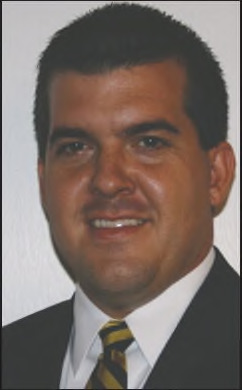The Pierce County Planning Commission recommended two ordinances regulating solar farms, bitcoin mines and Battery Energy Storage Systems (BESS) be sent to the Pierce County Commissioners for approval.
The Friday, Sept. 12, meeting began 13 minutes after its scheduled 8:30 a.m. start time to accommodate audience requests for copies of the proposed ordinances.
After the pledge and invocation code inspector Chris Bond was invited to address the planning commission and those in the audience to. Bond gave a concise but detailed summation of the two proposed ordinances.
Essentially, bitcoin mines will not be allowed to operate anywhere in Pierce County except in the industrial park, and even then there will be significant restrictions upon where and how they can operate, especially in proximity to nearby residential structures. Solar farms and BESS power storage sites will be allowed to operate in areas of the county outside the industrial park, but several items within the ordinances will ensure they stay out of site, having to be set back from roadways and concealed by fences.
Bond also took time to answer questions from commission members and also the audience of approximately 13 people. He reviewed decommission bonds for solar and bitcoin sites that would be required of builders to guard against the sites being abandoned should the owners no longer want them. The code inspector also addressed the varying decibel limitations on bitcoin mines and the requirement that a professional accoustist verify the facilities compliance with local ordinances, not handheld devices or phone apps used by those with a financial interest in such businesses.
Bond also mentioned that the parts of the new ordinance that address BESS facilities are the first of their kind. While the solar and bitcoin portions were modeled after similar documents from Ware County and the city of Blackshear, there were no other ordinances in the state upon which to model the county’s approach to BESS sites.
The called meeting lasted nearly 90 minutes and some of the finer points of both proposed ordinances were discussed in depth.
Some in the audience were concerned with environmental impacts, others with potential eyesores or noise pollution spoiling the natural beauty of Pierce County and still others said such installations brought no economic benefit to the county, only those who owned them.
One attendee, Victor Balaguer, a former fire inspector from New Jersey, suggested additions to the BESS ordinance to specify covering damage to fire gear from the acid used in battery facilities requiring assistance from first responders. Balaguer said contact with even comparatively small amounts of acid can compromise the effectiveness of fire gear and contaminated gear would then require EPA compliant disposal. Balaguer also said he knew from personal experience, “they will fight you on it if it isn’t in the ordinance.”
Another member of the audience, Dawn Thompson, seemed confused as to why ordinances were being drawn up to regulate the various facilities rather than banning them outright.
“What is the reason that we would entertain something like this?” Thompson asked. “Who is benefiting from entertaining this?”
“That would be the property owners,” Bond replied, adding, “But these are really tight ordinances.”
“It is better to have something on the books that is severely limiting than nothing at all,” said planning commission chairman Adam Hart. “There can always be amendments to ordinances.”
Based upon recommendations from those present, the planning commission added a decommission bond requirement to any future BESS installations. Commission member Timothy Griffis also proposed a requirement that the fencing around bitcoin facilities be taller than the facility itself, even if it was “stacked” to the allowable limit of two levels high.
Both ordinances passed with a simple majority and will now move to the county commission before being signed into law. at the county commission’s next regular meeting October 7.

Hart “It is better to have something on the books that is severely limiting than nothing at all,” said planning commission chairman Adam Hart. “There can always be amendments to ordi-








